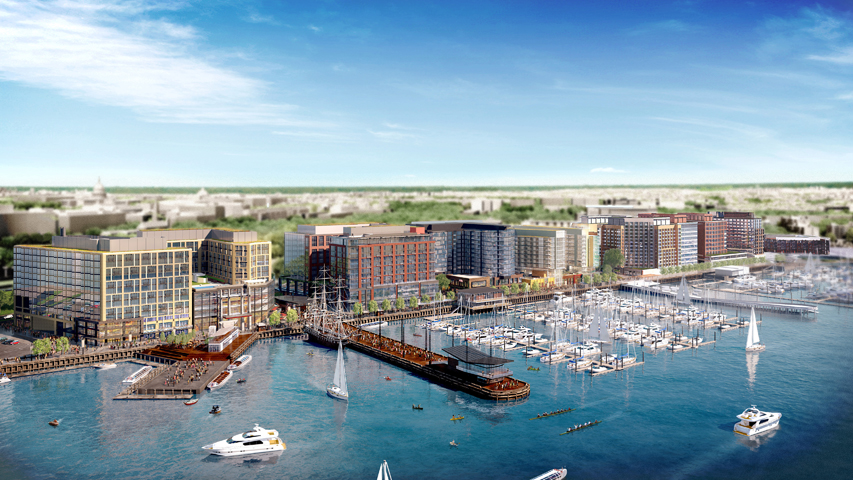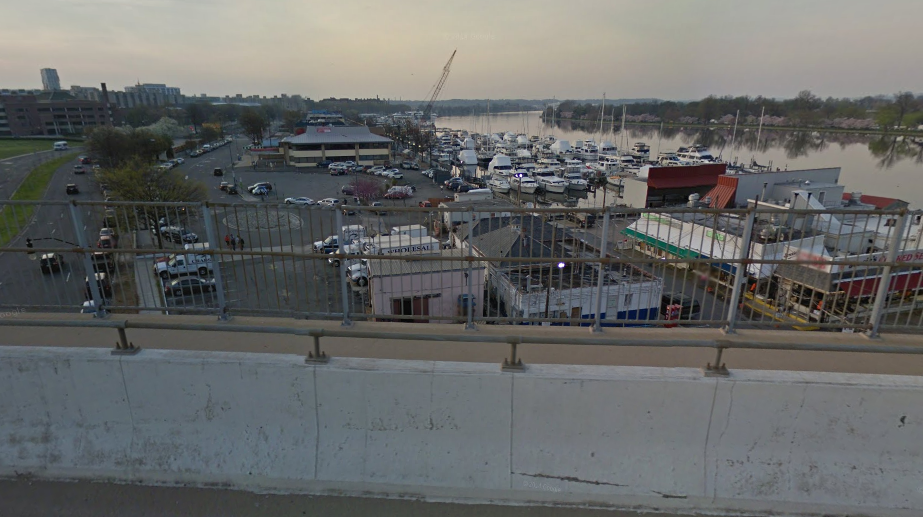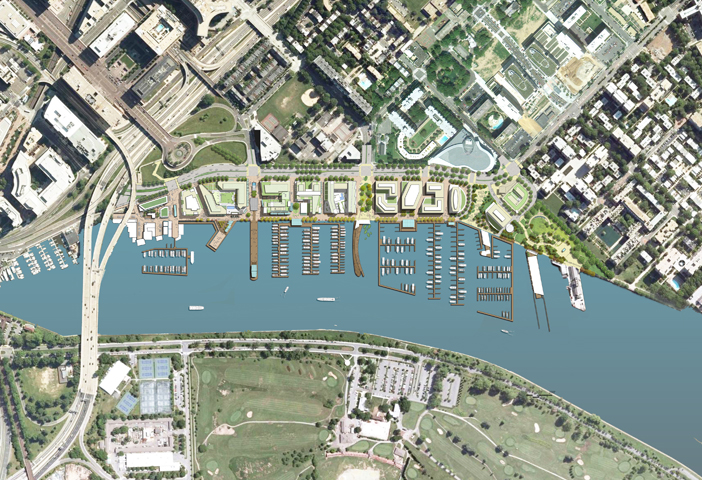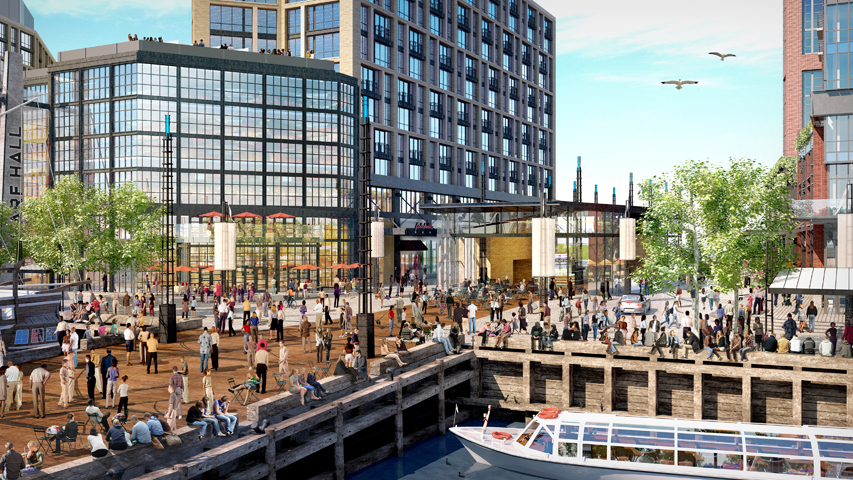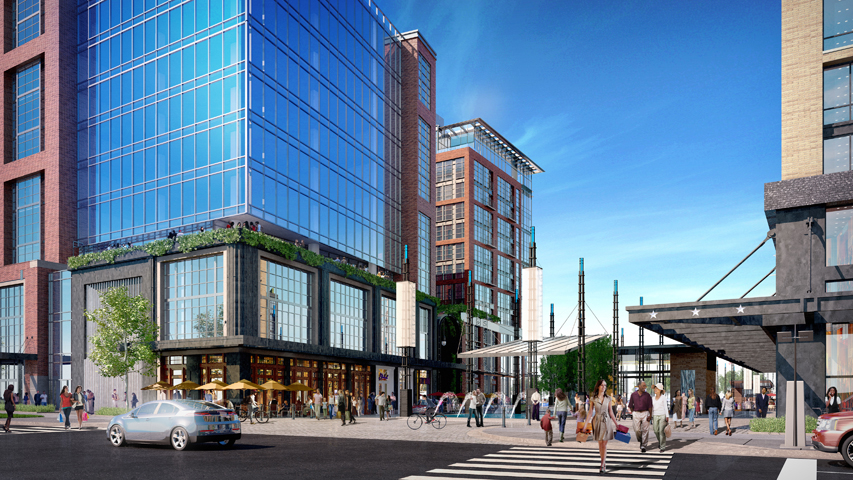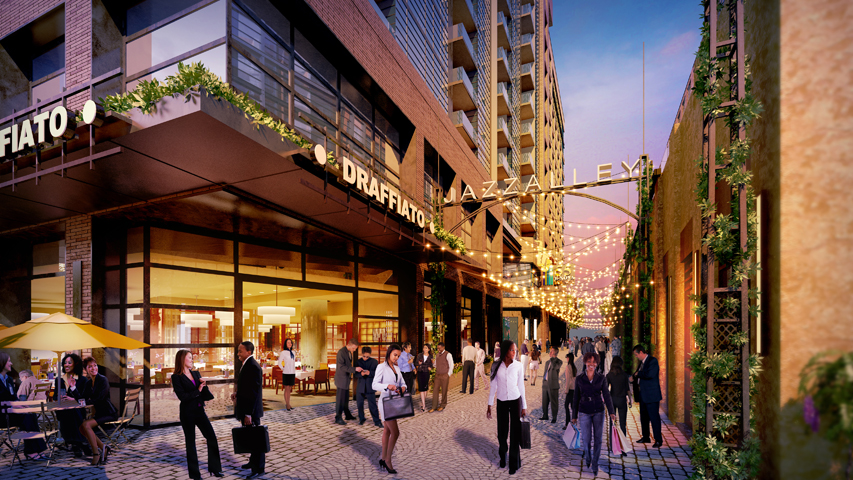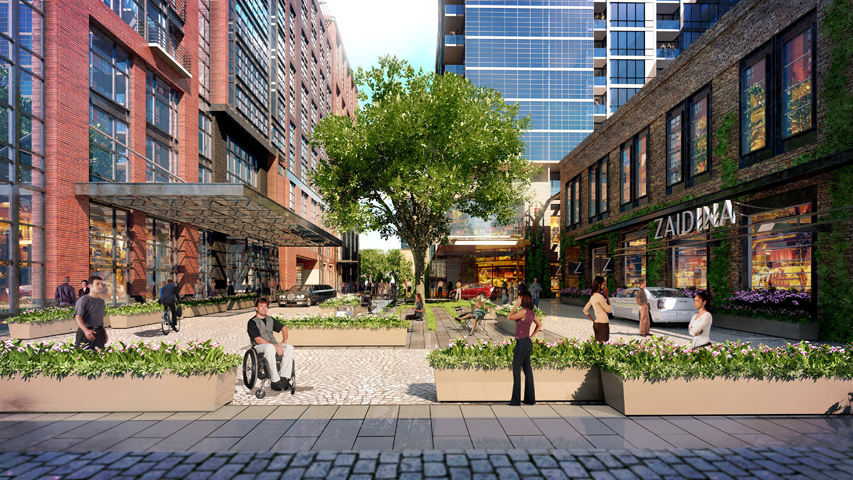With the I-395 overpass and expansive parking lots, Washington D.C.’s southwestern waterfront is more car-oriented than it is maritime. Because of this, the capital’s waterfront is missing out on the vibrancy of other cities by the water, such as Copenhagen, Venice, or Seattle.
The Wharf, a new wharf plan for the District, aims to change this scenario. The project, a team effort including the District of Columbia, Perkins Eastman and developer Hoffman-Madison Marquette, will transform the car-dominated streets into a complex of “shared space.” Greater Greater Washington reports that the street planning gives pedestrians priority, using subtle but effective visual cues instead of curbs and traffic signals. Paving selection that helps differentiate pedestrian, vehicular, and shared spaces is a key aspect.
The mixed-use complex will house retail, offices, housing, and public spaces such as parks and an extensive waterfront promenade.
The project broke ground in March 2014 and will be built in phases, with completion slated for 2020.
Visit The Wharf's official website for more information.
The current, car-dominated southwestern waterfront. Photo via Google Maps.
Ground plan of the Wharf. Courtesy of Perkins Eastman.
A view of the Civic Commons. Courtesy of Perkins Eastman.
Maine Avenue. Courtesy of Perkins Eastman.
The "Jazz Alley" at night. Courtesy of Perkins Eastman.
A piazza. Courtesy of Perkins Eastman
Related Stories
Cultural Facilities | Mar 26, 2024
Renovation restores century-old Brooklyn Paramount Theater to its original use
The renovation of the iconic Brooklyn Paramount Theater restored the building to its original purpose as a movie theater and music performance venue. Long Island University had acquired the venue in the 1960s and repurposed it as the school’s basketball court.
Adaptive Reuse | Mar 26, 2024
Adaptive Reuse Scorecard released to help developers assess project viability
Lamar Johnson Collaborative announced the debut of the firm’s Adaptive Reuse Scorecard, a proprietary methodology to quickly analyze the viability of converting buildings to other uses.
Security and Life Safety | Mar 26, 2024
Safeguarding our schools: Strategies to protect students and keep campuses safe
HMC Architects' PreK-12 Principal in Charge, Sherry Sajadpour, shares insights from school security experts and advisors on PreK-12 design strategies.
Green | Mar 25, 2024
Zero-carbon multifamily development designed for transactive energy
Living EmPower House, which is set to be the first zero-carbon, replicable, and equitable multifamily development designed for transactive energy, recently was awarded a $9 million Next EPIC Grant Construction Loan from the State of California.
Museums | Mar 25, 2024
Chrysler Museum of Art’s newly expanded Perry Glass Studio will display the art of glassmaking
In Norfolk, Va., the Chrysler Museum of Art’s Perry Glass Studio, an educational facility for glassmaking, will open a new addition in May. That will be followed by a renovation of the existing building scheduled for completion in December.
Sustainability | Mar 21, 2024
World’s first TRUE-certified building project completed in California
GENESIS Marina, an expansive laboratory and office campus in Brisbane, Calif., is the world’s first Total Resource Use and Efficiency (TRUE)-certified construction endeavor. The certification recognizes projects that achieve outstanding levels of resource efficiency through waste reduction, reuse, and recycling practices.
Office Buildings | Mar 21, 2024
Corporate carbon reduction pledges will have big impact on office market
Corporate carbon reduction commitments will have a significant impact on office leasing over the next few years. Businesses that have pledged to reduce their organization’s impact on climate change must ensure their next lease allows them to show material progress on their goals, according to a report by JLL.
Adaptive Reuse | Mar 21, 2024
Massachusetts launches program to spur office-to-residential conversions statewide
Massachusetts Gov. Maura Healey recently launched a program to help cities across the state identify underused office buildings that are best suited for residential conversions.
Legislation | Mar 21, 2024
Bill would mandate solar panels on public buildings in New York City
A recently introduced bill in the New York City Council would mandate solar panel installations on the roofs of all city-owned buildings. The legislation would require 100 MW of solar photovoltaic systems be installed on public buildings by the end of 2025.


